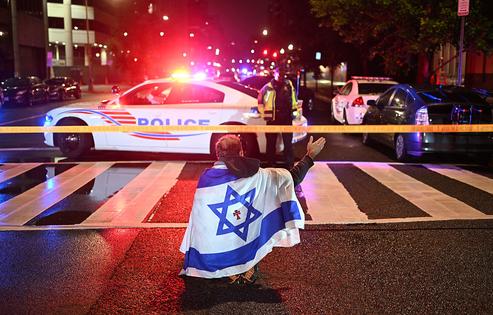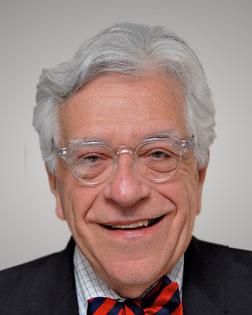The God Squad: Forgiving the DC shooter
How strange and chilling it is that my introduction last week of the issue of unconditional forgiveness this week has a tragic echo in the news of the brutal murder of two staff members of the Israeli Embassy in Washington – Sarah Milgrim, 26, and Yaron Lischinsky, 30, who were attending an American Jewish Committee event on Middle East cooperation.
I brought up the issue of unconditional forgiveness as a remembrance and tribute to Father Tom who believed deeply in it as a foundational belief of Christianity. I would push back at him with the contrary Jewish belief that only repentant sinners need to be forgiven. Now we have a bloody and agonizing test case for what had been just an abstract and theoretical topic. Now we have the issue before our souls. Do we have a spiritual obligation to forgive that clearly unrepentant murderer who was dragged away screaming his hateful antisemitic slogans?
Not only can I not forgive him, I want his soul to rot in hell, and this has nothing to do with the fact that I am a rabbi and he killed Jews. I felt the same thing after the 2015 murder of nine Christians at a church Bible study group at the Mother Emanuel Church in Charleston, S.C. And yet the families of those victims found it in their hearts to forgive that predator. Tommy admired them. I was bewildered by them. What does it mean, I must ask, to forgive someone who was happy to murder? Doesn’t it mean on some level that you are forgiving not just the murderer but also the murder? How can one forgive the killer without also forgiving the killing? I just cannot fathom what it means to forgive someone who luxuriates in their sin. That is where I am at. That is what my faith teaches.
However…
Interfaith dialogue of the type that forged my friendship with Father Tom requires that you remain open to the possibility that you are wrong or at the very least open to the possibility that viewing things from another perspective might bring you a wisdom that has eluded you in your inherited teachings and could nourish you in your future spiritual growth.
So I can say that I am open to at least considering what it would mean to transform vengeance into love? I am open to the argument that unconditional forgiveness deprives the sinner of exactly what he or she wants most and that is to crush your spirit and poison your soul? Seen in that way, forgiveness becomes the best revenge. The forgiveness allows you to swim in the waves of the world without also trying to hold onto a heavy rock of anger, hatred and vengeance that will surely pull you down under the waves unless and until you just let it go.
Where do you stand, my dear readers, on this bloody dilemma?
Like so many of you, a reader named J wrote to me with her eloquent beliefs about unconditional forgiveness:
Dear Rabbi Marc, with regard to your piece On unconditional forgiveness, I shall quote a saying that’s on my refrigerator door. ‘Forgiveness is giving up the hope that the past could be any different.’ I’m on the side of the repentant with a look toward the future where perhaps one would sin no more. As imperfect human beings, that probably won’t happen but my prayers are always full of hope!
Well said. God bless you, dear J. As for me and as for now, I am willing to consider the possibility that such unconditional forgiveness might be an aspirational value. That is, it might be a belief you could hope to embrace someday, even if you are unable to embrace it now. That is as close as I can get to Tommy’s saintly love.
However, now I am furious and frightened at the rise of antisemitism in our world, our universities and our culture. I am consumed by trying to figure out how our country can find a balance between free speech that must be protected and hate speech that must be contained and confronted. Wiser minds than mine must put an end to this.
I want to be able to enter a classroom or a synagogue or a meeting hall without having to first encounter an armed guard. I want to be able to write back to the college kids from my synagogue who wrote to me during some campus demonstrations, “Rabbi Gellman, should I wear my Jewish star necklace in public?” I want to write back to them, despite my fears for their safety, “YES. Wear your Star of David and wear it with pride!”
While we debate forgiveness let us find a way to live together in peace.
(Send ALL QUESTIONS AND COMMENTS to The God Squad via email at godsquadquestion@aol.com. Rabbi Gellman is the author of several books, including “Religion for Dummies,” co-written with Fr. Tom Hartman. Also, the new God Squad podcast is now available.)
©2025 The God Squad. Distributed by Tribune Content Agency, LLC.
(c) 2025 THE GOD SQUAD DISTRIBUTED BY TRIBUNE MEDIA SERVICES, INC.












Comments